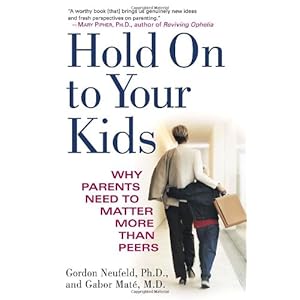I'd like to know how far is R' Twerski willing to go with this line: "The greatest danger is not being aware that one exists." There are all sorts of dangers out there and is it really necessary for us to know about them all? I am not convinced. I think we ought to protect children and even ourselves from unnecessary exposure to the seamier sides of life.
And more important, I think, than informing children of lurking dangers is to inform young marrieds that they must devote themselves to raising their children, heart and soul. Both parents need to give their children quality and quantity time. Nothing can replace sitting around with kids on Shabbos or any other time and just shmoozing, sharing ideas, stories. Singing together. Going on outings together. Nothing. I don't care how many speeches kids get about drugs - predators - eating disorders - smoking - moods and depresssion - it's worth hardly anything at all if they don't have a loving and respectful relationship with their parents. When children want to emulate their parents and don't want to hurt them, then self-destructive and secretive behavior is rendered unnecessary. We need to work to increase family loyalty and decrease the kind of peer pressure that makes parents bystanders in kids' lives.
Recommended reading: Hold On to Your Kids: Why Parents Need to Matter More Than Peers
by Gordon Neufeld and Gabor Mate M.D.




In some homes, the emphasis for Shabbos meals is on having guests and if the home is geared to kiruv, then those guests are given most of the attention. In some cases, this is unavoidable because the parents are kiruv professionals and the parents have to find other opportunities to spend special time with the children on Shabbos. Of course, the children can give a d'var Torah for the guests and sing for the guests but family discussions won't be able to take place in front of the guests.
ReplyDeleteI wonder if children who decide not to stay frum were second fiddle to guests too often.
About guests and second fiddle, rosie it has happened. I do know of a family that had a BUNCH of kids go off the derech and one said specifically it was always all about the guests and they weren't given the attention they needed.
ReplyDeleteIt's all about balance. As someone that needs to pull up socks in the hosting department, I can tell you that it is also important to host guests for the kids sake as well as for the mitzva itself.
The kids need to see the Hachnosos Orchim too and the kiruv.
It's possible to do both so long as your priorities are all in the right places and you remember whats important and who comes first and when. Yes sometimes the kids do have to play second fiddle, (as part of their chinuch too) but the parents will have to make up for it in some way.
The important thing is not to go so far as to encroach on the children's space and take from them against their will. They need to be taught to WANT to do it and to share
I would venture to guess that the guests versus the kids was a symptom of a deeper problem that even when the guests weren't present the kids' emotional needs were not being met.
ReplyDeleteoh for sure.
ReplyDelete